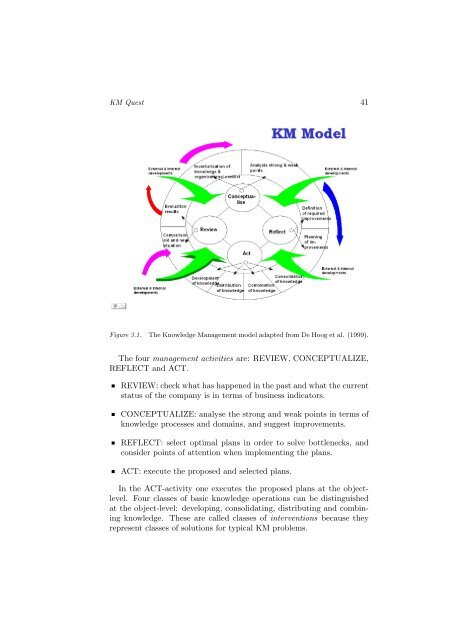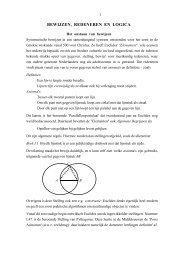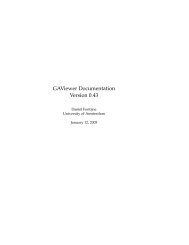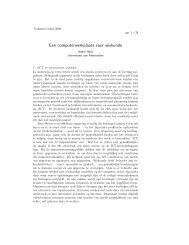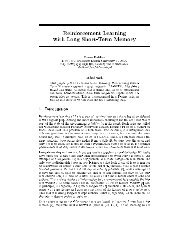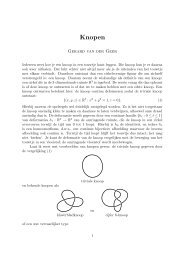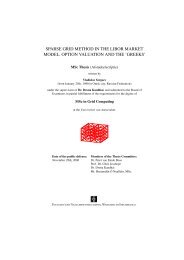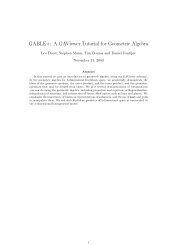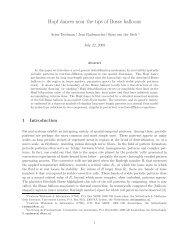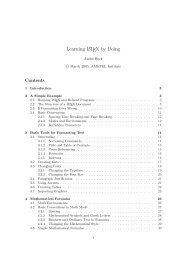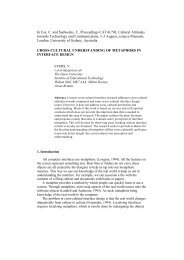The role of metacognitive skills in learning to solve problems
The role of metacognitive skills in learning to solve problems
The role of metacognitive skills in learning to solve problems
Create successful ePaper yourself
Turn your PDF publications into a flip-book with our unique Google optimized e-Paper software.
KM Quest 41<br />
Figure 3.1. <strong>The</strong> Knowledge Management model adapted from De Hoog et al. (1999).<br />
<strong>The</strong> four management activities are: REVIEW, CONCEPTUALIZE,<br />
REFLECT and ACT.<br />
REVIEW: check what has happened <strong>in</strong> the past and what the current<br />
status <strong>of</strong> the company is <strong>in</strong> terms <strong>of</strong> bus<strong>in</strong>ess <strong>in</strong>dica<strong>to</strong>rs.<br />
CONCEPTUALIZE: analyse the strong and weak po<strong>in</strong>ts <strong>in</strong> terms <strong>of</strong><br />
knowledge processes and doma<strong>in</strong>s, and suggest improvements.<br />
REFLECT: select optimal plans <strong>in</strong> order <strong>to</strong> <strong>solve</strong> bottlenecks, and<br />
consider po<strong>in</strong>ts <strong>of</strong> attention when implement<strong>in</strong>g the plans.<br />
ACT: execute the proposed and selected plans.<br />
In the ACT-activity one executes the proposed plans at the objectlevel.<br />
Four classes <strong>of</strong> basic knowledge operations can be dist<strong>in</strong>guished<br />
at the object-level: develop<strong>in</strong>g, consolidat<strong>in</strong>g, distribut<strong>in</strong>g and comb<strong>in</strong><strong>in</strong>g<br />
knowledge. <strong>The</strong>se are called classes <strong>of</strong> <strong>in</strong>terventions because they<br />
represent classes <strong>of</strong> solutions for typical KM <strong>problems</strong>.


